1. Introduction
- Introduction to the topic
- Mention of lesser-known fruits
2. Rich Nutritional Profile
- Overview of nutrients in Jambu (Buy Now)
- Benefits of vitamins A and C
- Importance of minerals like calcium, potassium, and iron
3. Excellent Hydration Source
- High water content in Jambu
- Comparison to other hydrating fruits
- Benefits of hydration
4. Antioxidant Properties
- Explanation of antioxidants
- Benefits of antioxidants in Jambu
- Impact on inflammation and heart health
5. Digestive Health Benefits
- Role of dietary fiber
- Benefits for digestion and gut health
- Prevention of constipation
6. Unique Flavor and Culinary Versatility
- Description of Jambu’s flavor
- Culinary uses
- Creative recipes
7. Health Benefits Overview
- Summary of health benefits
- Importance of incorporating Jambu into the diet
8. Cultural and Historical Significance
- Jambu in different cultures
- Historical use of Jambu
9. Environmental Impact
- Growing conditions
- Sustainability of Jambu farming
10. Comparison with Other Fruits
- Nutritional comparison
- Flavor comparison
11. Availability and Seasonality
- Where to find Jambu
- Best seasons for Jambu
12. Buying and Storage Tips
- How to select ripe Jambu
- Storage recommendations
13. Preparing Jambu
- Cleaning and preparing the fruit
- Basic recipes
14. Common Myths and Misconceptions
- Addressing myths about Jambu
- Clarifying misconceptions
15. Conclusion
- Recap of key points
- Encouragement to try Jambu
16. FAQs
- What is the best way to eat Jambu?
- Can Jambu help with weight loss?
- Are there any side effects of eating Jambu?
- How can I use Jambu in cooking?
- Where can I buy Jambu?
Introduction
When we think of fruits, our minds often gravitate towards familiar favorites like apples, bananas, and oranges. However, there are countless lesser-known fruits that deserve the spotlight, and one such gem is the Jambu, also known as the wax apple or rose apple. Despite its unique flavor and numerous health benefits, the Jambu remains under-appreciated. Here are five reasons why this exotic fruit deserves more attention.
Rich Nutritional Profile
Jambu is a powerhouse of essential nutrients. It is low in calories and packed with vitamins A and C, which are crucial for maintaining healthy skin and boosting the immune system. Additionally, it contains important minerals like calcium, potassium, and iron, making it a great choice for overall well-being.
Benefits of Vitamins A and C
Vitamins A and C found in Jambu are vital for various bodily functions. Vitamin A supports eye health and immune function, while vitamin C is an antioxidant that helps repair body tissues and boosts immunity.
Importance of Minerals
The minerals in Jambu, including calcium, potassium, and iron, contribute to bone health, heart function, and blood oxygenation. These nutrients make Jambu a valuable addition to a balanced diet.
Excellent Hydration Source
With its high water content, Jambu is incredibly refreshing and hydrating. This makes it an ideal fruit for hot summer days or after a rigorous workout. Eating Jambu can help keep you hydrated and replenish lost fluids, much like watermelon or cucumber, but with its own distinct, delightful taste.
Comparison to Other Hydrating Fruits
Jambu stands out among other hydrating fruits due to its unique flavor and texture. Its mild sweetness and juiciness make it a favorite for those looking to stay hydrated without consuming too many calories.
Antioxidant Properties
Jambu is rich in antioxidants, which play a vital role in protecting the body from free radicals and oxidative stress. These antioxidants can help reduce inflammation, improve heart health, and even lower the risk of chronic diseases. Including Jambu in your diet can be a delicious way to enhance your antioxidant intake.
Impact on Inflammation and Heart Health
The antioxidants in Jambu help reduce inflammation, which is linked to numerous chronic conditions. Additionally, these antioxidants support heart health by preventing oxidative damage to heart cells and improving overall cardiovascular function.
Digestive Health Benefits
The dietary fiber in Jambu aids in digestion and helps prevent constipation. It promotes a healthy gut by facilitating regular bowel movements and supporting the growth of beneficial gut bacteria. Incorporating Jambu into your diet can contribute to better digestive health and overall comfort.
Role of Dietary Fiber
Dietary fiber is essential for maintaining a healthy digestive system. Jambu provides a good amount of fiber, which helps in smooth digestion and prevents digestive issues like constipation and bloating.
Unique Flavor and Culinary Versatility
Jambu has a unique, mildly sweet flavor with a hint of rose essence, making it a delightful addition to various dishes. It can be enjoyed fresh, added to fruit salads, blended into smoothies, or even used in savory dishes for a touch of sweetness. Its versatility in the kitchen allows for creative culinary experimentation.
Creative Recipes
Jambu can be used in numerous recipes, from simple fruit salads to more complex dishes like Jambu chutney or Jambu salsa. Its unique flavor enhances both sweet and savory dishes, making it a versatile ingredient.
Health Benefits Overview
The Jambu fruit is a hidden treasure in the world of fruits. Its rich nutritional profile, excellent hydration properties, antioxidant benefits, digestive health support, and unique flavor make it a fruit worth celebrating. Next time you come across Jambu, don’t hesitate to give it a try and discover the myriad ways it can enhance your diet and overall health.
Cultural and Historical Significance
Jambu has a rich cultural and historical background. It has been used in traditional medicine and culinary practices in various cultures, highlighting its importance beyond just nutrition.
Jambu in Different Cultures
In many Asian countries, Jambu is a common fruit in traditional diets and is often used in rituals and ceremonies. Its cultural significance adds another layer of appreciation for this unique fruit.
Environmental Impact
Growing Jambu is relatively sustainable, as the trees require minimal pesticides and can thrive in diverse climates. This makes Jambu a more environmentally friendly option compared to some other fruits.
Sustainability of Jambu Farming
Jambu trees are resilient and require less water than many other fruit trees, making them a sustainable choice for farmers and the environment.
Comparison with Other Fruits
Nutritionally, Jambu holds its own against more popular fruits. It provides a unique blend of vitamins, minerals, and antioxidants that make it a worthy addition to any fruit bowl.
Nutritional Comparison
Compared to apples and oranges, Jambu offers similar benefits with its own unique set of nutrients. Its lower calorie content and high water content make it an excellent choice for those looking to manage their weight while staying hydrated.
Availability and Seasonality
Jambu is typically available in tropical and subtropical regions. Understanding its seasonality can help you find the freshest and most flavorful Jambu.
Best Seasons for Jambu
The best time to find fresh Jambu is during the warmer months when the fruit is in peak season. This is when the flavor and nutritional content are at their highest.
Buying and Storage Tips
When selecting Jambu, look for fruits that are firm and free of blemishes. Proper storage can extend the shelf life of Jambu and maintain its freshness.
How to Select Ripe Jambu
Ripe Jambu should be firm to the touch and have a vibrant color. Avoid fruits with soft spots or discoloration, as these may indicate overripeness or spoilage.
Preparing Jambu
Cleaning and preparing Jambu is simple. It can be eaten raw or incorporated into various recipes for a refreshing and nutritious treat.
Basic Recipes
Start with simple preparations like Jambu slices with a sprinkle of salt or lime juice. As you become more familiar with the fruit, experiment with more complex dishes.
Common Myths and Misconceptions
There are several myths and misconceptions about Jambu that may deter people from trying it. Addressing these can help more people appreciate the fruit’s true value.
Addressing Myths About Jambu
Some believe Jambu is difficult to prepare or lacks flavor. However, once you try it, you’ll find that it’s easy to incorporate into your diet and offers a unique, pleasant taste.
Conclusion
The Jambu fruit is a hidden treasure in the world of fruits. Its rich nutritional profile, excellent hydration properties, antioxidant benefits, digestive health support, and unique flavor make it a fruit worth celebrating. Next time you come across Jambu, don’t hesitate to give it a try and discover the myriad ways it can enhance your diet and overall health.
So, why not step out of your fruit
FAQs
1. What is the best way to eat Jambu? The best way to eat Jambu is fresh, as it retains all its natural flavors and nutrients. Simply wash the fruit, slice it, and enjoy it raw. You can also add it to fruit salads, smoothies, or use it in various recipes for a refreshing twist.
2. Can Jambu help with weight loss? Yes, Jambu can be beneficial for weight loss. It is low in calories and high in water content, which helps keep you full and hydrated without adding extra calories. Its fiber content also aids in digestion and promotes a feeling of satiety.
3. Are there any side effects of eating Jambu? Jambu is generally safe to eat and does not have significant side effects. However, consuming it in moderation is always a good idea. If you have any specific health conditions or allergies, it’s best to consult with a healthcare professional before adding it to your diet.
4. How can I use Jambu in cooking? Jambu is versatile and can be used in various culinary applications. You can add it to fruit salads, blend it into smoothies, or use it in savory dishes like salsas and chutneys. Its mildly sweet flavor with a hint of rose essence complements both sweet and savory recipes.
5. Where can I buy Jambu? Jambu is typically available in tropical and subtropical regions. You can find it in local markets, specialty stores, or online fruit retailers. Additionally, you can check out addluspices.com for more information on where to purchase Jambu and other exotic fruits. The availability may vary depending on the season and your location.

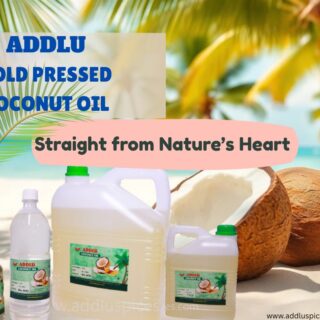


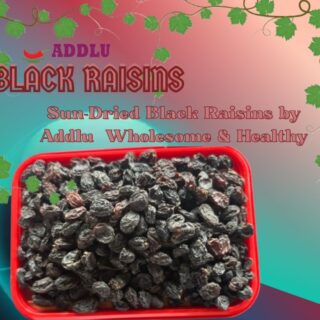
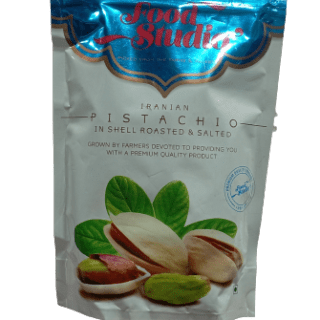

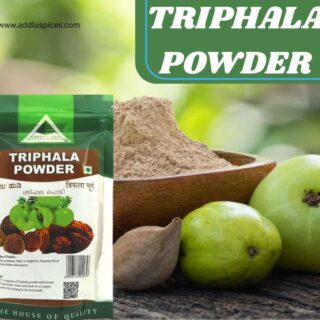
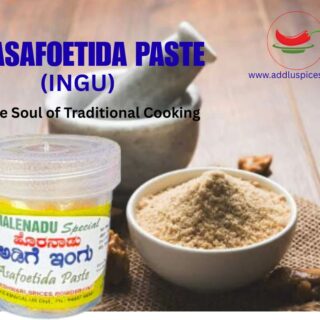
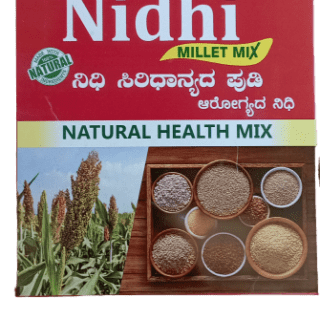
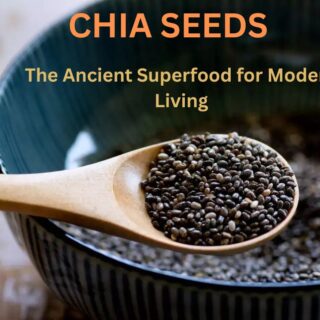
Leave a Reply